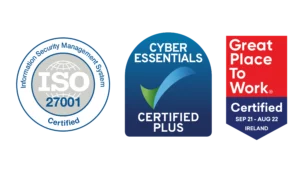Knowledge management is changing at such a dramatic rate these days that sometimes it can be hard for companies and organizations to keep up. Artificial intelligence, machine learning, and cloud-based content management are changing the face of knowledge management as we know it, enabling us to do more than we ever thought possible, but what else is changing and how do we ensure that the knowledge management system we invest in is worth it?
Though the fundamentals of documenting, storing, searching, locating and knowledge remain the same, the amount of content continues to grow at an alarming level. It’s now a mandatory requirement to have tools that allow you to keep on top of all the new content coming in, making sure it is all in there, up-to-date, and easily accessible to everyone. If your knowledge management can’t do that, then nobody is going to use it and it will become redundant very fast. So, how do you make sure it’s successful?
1. Prioritize 'stickiness'
Though the fundamentals of documenting, storing, searching, locating and knowledge remain the same, the amount of content continues to grow at an alarming level.
2. Implement the right technology tools
These include tools that facilitate full text search, remote user authentication, categorization, and bulk file uploads. They ensure that the content is in there as quick as it arrives, properly tagged and categorized so that people can find it easily.
AI tools make the process of uploading new content a one-click step, which encourages everyone to add to it. This makes the job of creating and maintaining a rich body of useful content less of a job and more of a natural, instinctive, collaborative process across the entire organization.
3. Simplify the search
Google has transformed the way we search. Searching for answers online now is more of a “request search” demand – we expect the search to be done for us. That’s what people want from a knowledge management system too, otherwise why would they use it when they could consult Google instead?
Even if Google’s answers aren’t as rich and knowledgeable as the ones you could find in your company’s content, most people will choose the easiest option available to them when they are working to tight deadlines and they need to get things done efficiently.
Automated search is therefore a crucial component to an efficient, effective, successful knowledge management system. Even more important is having these search results in-built into the context and environment in which you are working – this is the way knowledge management systems are going and it is one step closer to having the answers always at your fingertips.
What’s more, it is the way to build a reputation as the go-to place for expert knowledge and rich content – a service that, as content continues to grow and multiply at a rate many won’t be able to keep up with, clients will be all the more willing to pay for.

